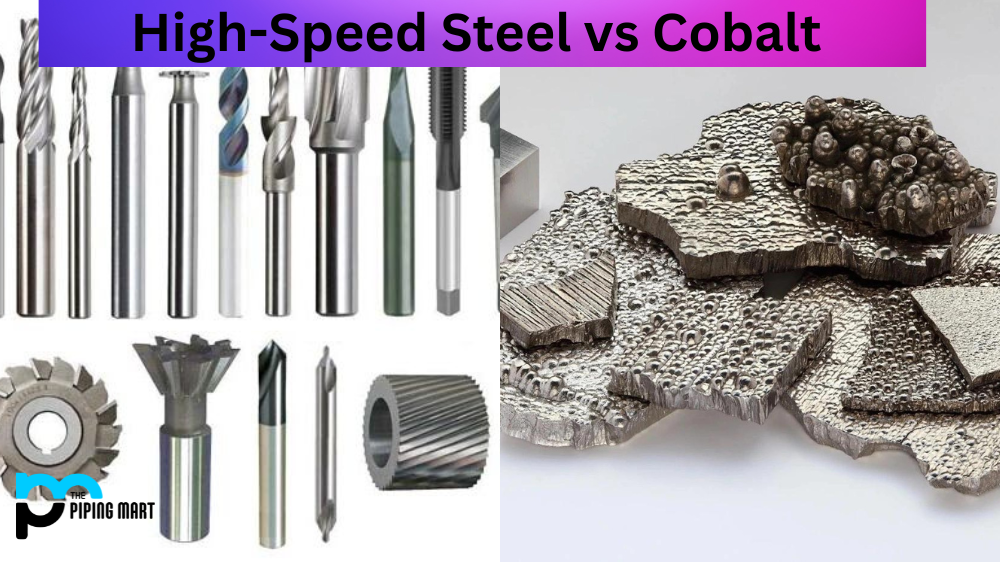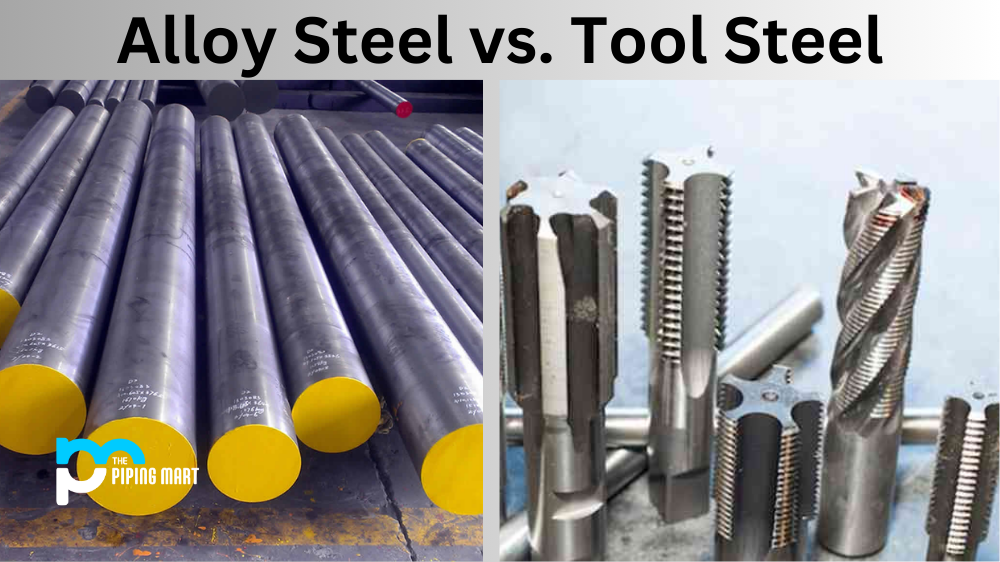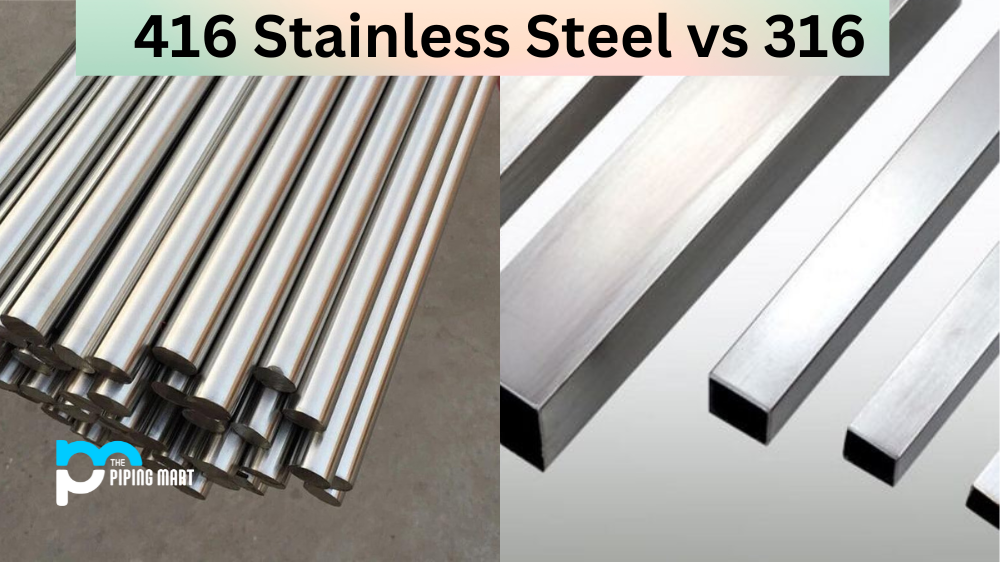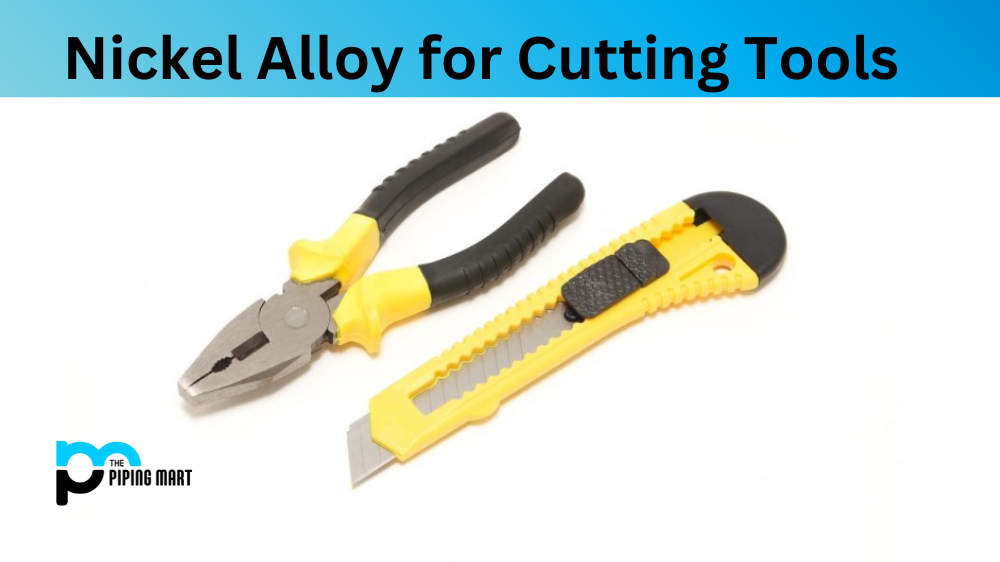If you have ever worked with metal, chances are you have heard of high-speed steel and cobalt. These two metals are incredibly popular in the machining industry due to their ability to resist wear and tear at higher temperatures. But what exactly is the difference between these two metals? Let’s take a look.
What is High-Speed Steel?
High-Speed Steel (HSS) is a metal alloy made up primarily of iron, tungsten, and carbon. HSS is known for its hardness, toughness, and ability to withstand high temperatures without losing its strength or shape. It also has excellent abrasion resistance properties, which make it useful for cutting tools such as drill bits and taps. The downside of HSS is that it can be difficult to work with due to its brittle nature; however, this can be offset by using proper cutting techniques.High-speed steel is a type of tool steel that is used for making cutting tools. It is often used for applications where high temperatures are encountered, such as in drill bits and end mills. High-speed steel is made by adding carbon and other alloying elements to iron. The addition of these elements helps to improve the hardness and wear resistance of the steel.
What is Cobalt?
Cobalt is a chemical element that has been used in various manufacturing processes since ancient times. In modern times, cobalt is widely used in machining applications because of its ability to resist wear at higher temperatures while still maintaining its strength and shape. Cobalt-based alloys are typically harder than HSS alloys but are also more prone to cracking or chipping if not handled properly. This means that they require more skill when being machined compared to HSS alloys. Cobalt is a chemical element that is often used as an alloying agent in steels and other metals. When added to steel, cobalt improves the hardenability, strength, and wear resistance of the metal. Cobalt is also used in super alloys, which are materials that are resistant to high temperatures and corrosion.
Differences Between High-Speed Steel and Cobalt
The main difference between high-speed steel and cobalt is their composition. High-speed steel contains a higher percentage of carbon, while cobalt contains a higher percentage of chromium. The different composition of these two materials results in different properties, with high-speed steel being more suitable for applications where high temperatures are encountered . Both HSS and cobalt-based alloys have their strengths and weaknesses; however, each can be suitable for certain applications depending on your needs. For example, if you need a tool or machine part that will be exposed to extremely high temperatures, then cobalt may be the better choice due to its superior heat-resistance properties compared to HSS alloys. On the other hand, if you need something that will retain its strength even when exposed to extreme wear or abuse, then an HSS alloy may be the way to go.
Properties of High-Speed Steel
The main properties of high-speed steel are its high hardness and wear resistance. High-speed steel also has good toughness and shock resistance. The high carbon content of high-speed steel means that it can be heat treated to achieve a wide range of properties.
Properties of Cobalt
The main properties of cobalt are its high hardness and wear resistance. Cobalt also has good corrosion resistance and thermal conductivity. The addition of cobalt to steel can improve the hardenability, strength, and wear resistance of the metal.
Conclusion:
High-speed steel (HSS) and cobalt both have their advantages and disadvantages when used in machining applications; however, which one you choose ultimately depends on your needs. If you need something that will stand up against extreme wear or abuse, then an HSS alloy would be best suited for your application; however, if you need something that will retain its strength even when exposed to extremely high temperatures, then cobalt may be your best bet due to its superior heat-resistant properties compared to HSS alloys. Ultimately it’s important to understand the pros and cons of each material before deciding which one would best suit your needs!

Pipingmart is a B2B portal that specializes in metal, industrial and piping items. Additionally, we share the latest information and information about materials, products and various types of grades to assist businesses that are involved in this business.




